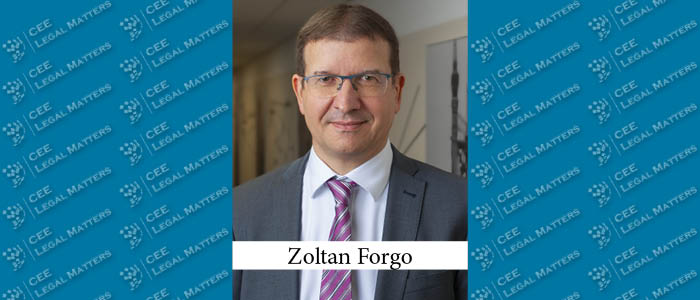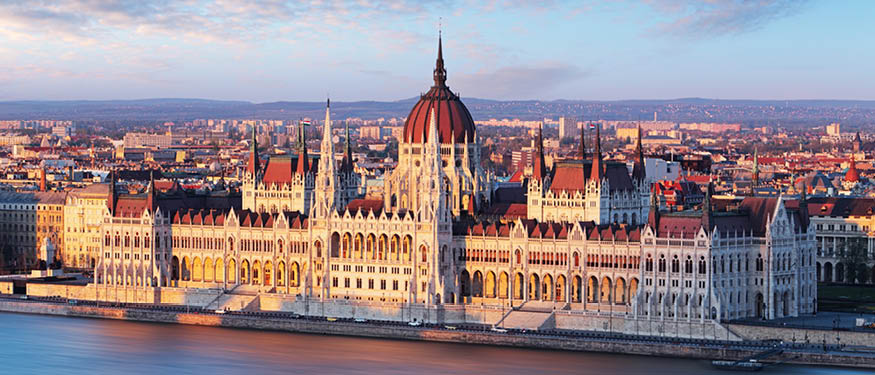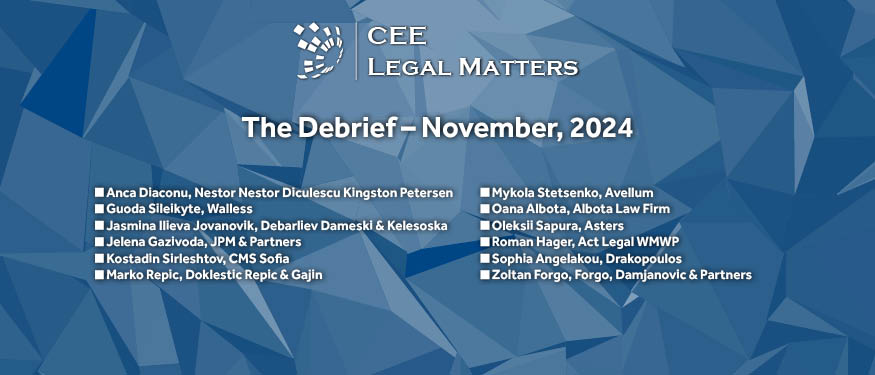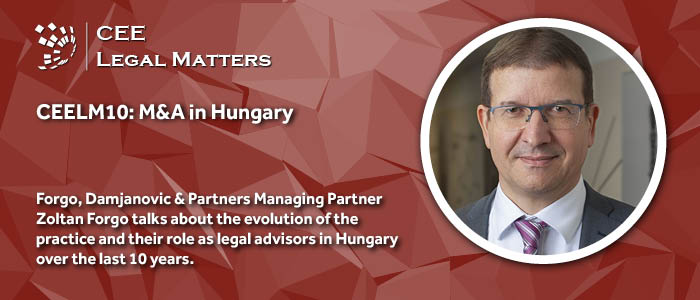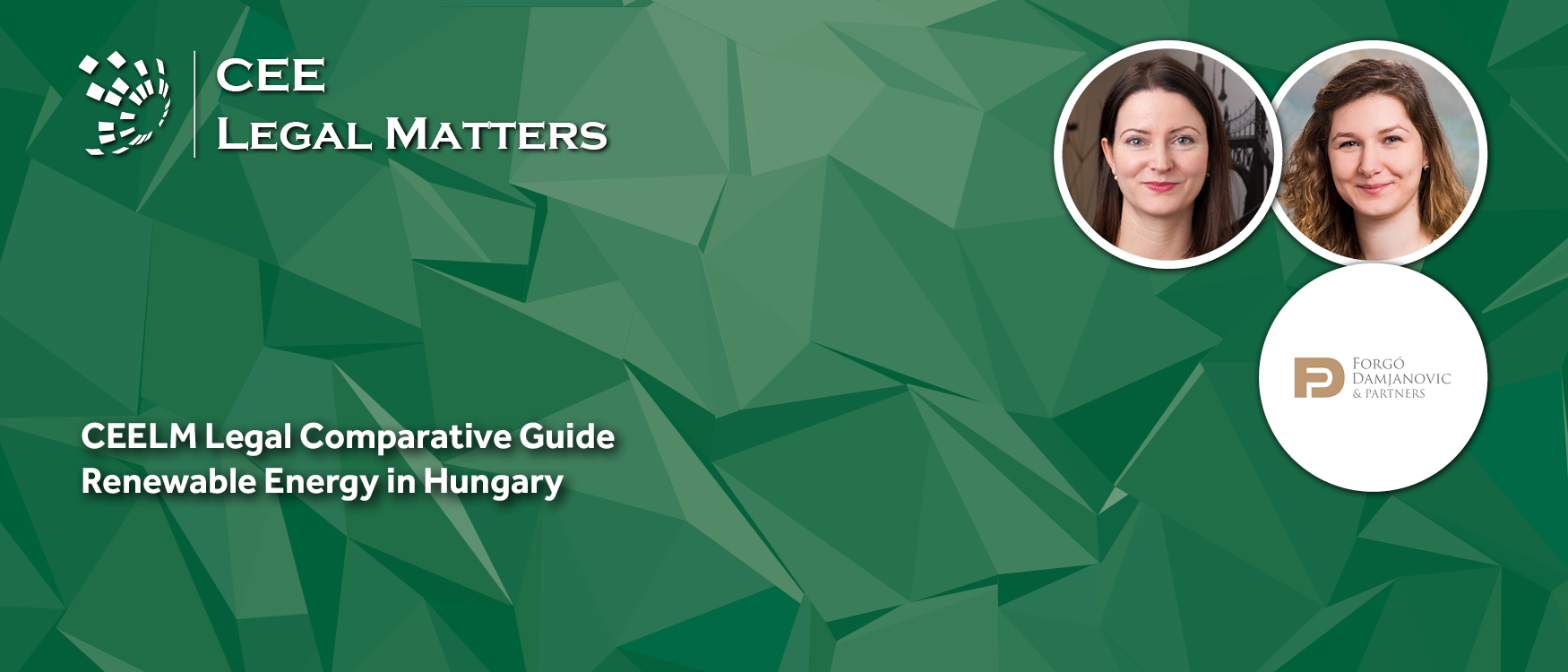In The Corner Office, we ask Managing Partners at law firms across Central and Eastern Europe about their backgrounds, strategies, and responsibilities. With 2024 behind us, we asked: Looking at transactional volumes for this year, would you say that 2024 was better or worse than what you originally expected it to be, and why?
An Outlook on 2025: M&A in Hungary
Forgo, Damjanovic & Partners Partner Zoltan Forgo talks about M&A in Hungary in 2025.
Oppenheim, Invicta, Havel & Partners, and Forgo, Damjanovic & Partners Advise on JRD Energo Group's Sale of PV Plant to Obton
Oppenheim and Invicta have advised JRD Energo Group and its co-investors on the sale of JRD’s Hungarian photovoltaic power plant portfolio with a 29.440 kilowatt built-in capacity to the Hungarian subsidiary of Obton. Forgo, Damjanovic & Partners and Havel & Partners advised Obton.
CMS and Forgo, Damjanovic & Partners Advise on K&H Bank's Refinancing of Obton Group PV Portfolio
CMS has advised K&H Bank on the refinancing of the solar portfolio consisting of Obton Group PV plants situated on 15 different locations across Hungary, with a total installed DC capacity of 71.107 megawatts. Forgo, Damjanovic & Partners reportedly advised Obton Group.
FDI Screening in CEE: A CEE Legal Matters Round Table
On November 7, 2024, M&A experts from Austria, Bosnia & Herzegovina, Croatia, Greece, Hungary, Moldova, Romania, and Ukraine participated in a virtual round table moderated by CEE Legal Matters Managing Editor Radu Cotarcea to discuss the FDI screening regimes in their country and key developments in the area on the horizon.
The Debrief: November, 2024
In The Debrief, our Practice Leaders across CEE share updates on recent and upcoming legislation, consider the impact of recent court decisions, showcase landmark projects, and keep our readers apprised of the latest developments impacting their respective practice areas.
Forgo, Damjanovic & Partners Advises on Sale of FoxPost to CVC and EMMA Capital
Forgo, Damjanovic & Partners has advised Wallis Asset Management and Trueway/Finext on the sale of FoxPost to CVC and EMMA Capital. CMS reportedly advised the buyers.
Current Trends in the Hungarian M&A Market
I looked at M&A transactions in the last years using publicly available sources, our own transactions, and information provided by corporate finance advisory partners. I found that in 37% of the cases, purchasers came from Western Europe, in 37% from Hungary (private companies or the Hungarian state), and in 11% from investors in the CEE, while transactions where the purchasers were of US or Asian origin were negligible (US 3%, Asia 4%).
The Debrief: January 2024
In The Debrief, our Practice Leaders across CEE share updates on recent and upcoming legislation, consider the impact of recent court decisions, showcase landmark projects, and keep our readers apprised of the latest developments impacting their respective practice areas.
CEELM10 Roundtable: A Decade of M&A in CEE
On November 21, 2023, corporate/M&A and private equity experts from Bulgaria, Greece, Hungary, Kosovo, Moldova, Romania, Serbia, Slovakia, Turkiye, and Ukraine sat down for a virtual round table moderated by CEE Legal Matters Managing Editor Radu Cotarcea to discuss the key developments in the field over the past decade.
CEELM10 Interview: A Decade of M&A in Hungary
Forgo, Damjanovic & Partners Managing Partner Zoltan Forgo talks about the evolution of the practice and their role as legal advisors in Hungary over the last 10 years.
The Highs and Lows of Renewable Energy in Hungary
The Hungarian renewable energy sector has developed significantly in recent years: the share of electricity from renewable energy sources in gross final electricity consumption was 7.51% in 2017, increasing to 13.9% in 2021. This rapid development was mainly due to the increase in solar power capacity, as the installed capacity of Hungarian solar power plants was around 350 megawatts in 2017, while it exceeded 4000 megawatts in 2022.
All Hail the Superbank
In recent years, the major development in Hungary’s banking system is the establishment of the country’s superbank through the merger of Budapest Bank, MKB Bank, and the Takarek Group. DLA Piper Partner Andras Nemescsoi, Forgo Damjanovic & Partners Managing Partner Gabor Damjanovic, and Jalsovszky Law Firm Managing Partner Pal Jalsovszky share insights into the driving forces behind this development, its current status, and its anticipated impact on Hungary’s banking sector.
Renewables in Hungary
Contributed by Forgo Damjanovic & Partners


